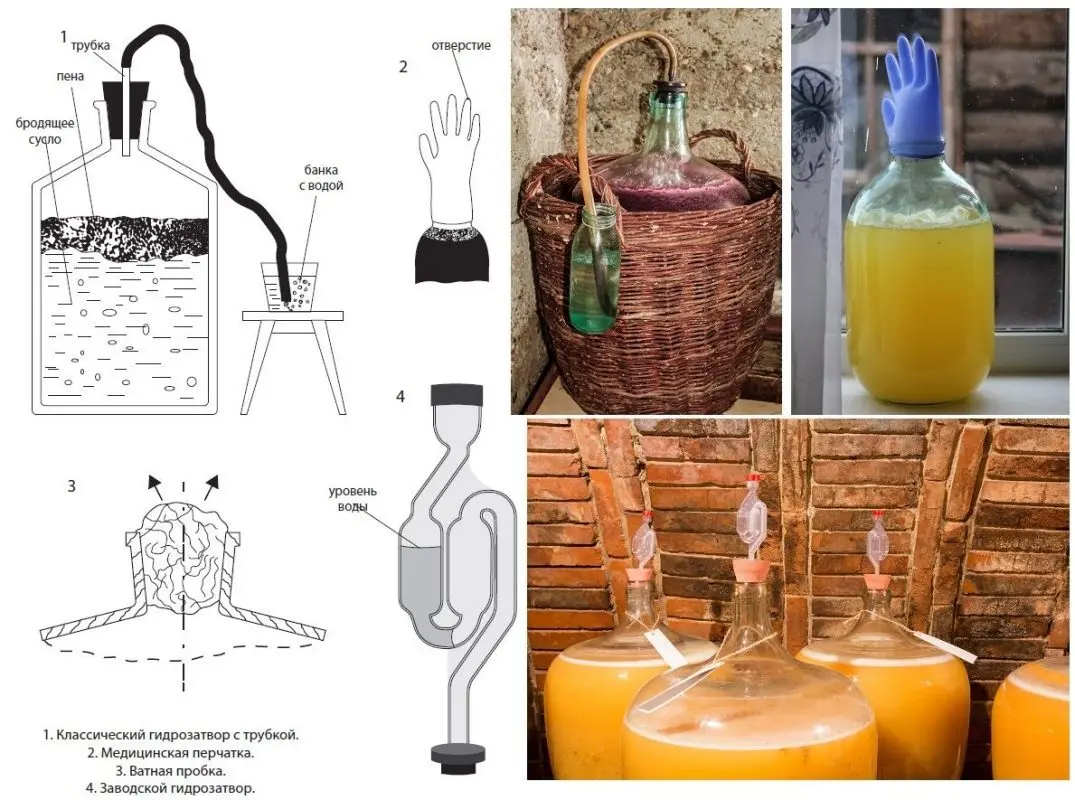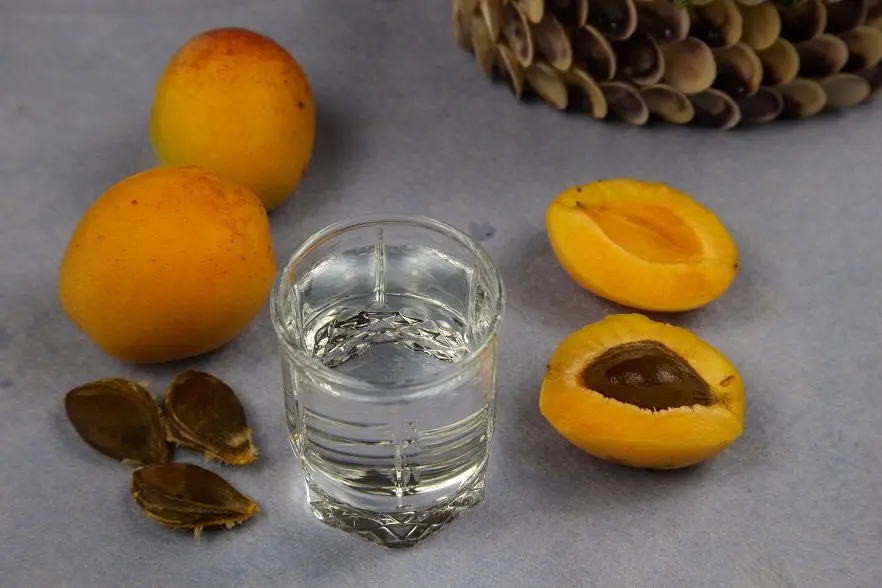Apricot chacha is remembered for its complex rich aroma with pronounced almond tones. The taste is slightly oily, in which notes of stones, vanilla and wood stand out well against an apricot background.
Even fallen apricots are suitable for cooking, but the fruits must be free of rot and mold. The carrion can not be washed, but only lightly wiped, removing the remnants of the earth (soil).
Real chacha is made from grape pomace, and thanks to the crushed seeds, the drink has characteristic almond tones. Approximately the same effect can be added in the case of apricot chacha by properly processing the bones. The organoleptic properties of apricot distillate will be richer than the grape counterpart.
apricot chacha recipe
Ingredients:
- apricots – 10 kg;
- water – 5 liters and another 4 liters for each kilogram of sugar (fructose);
- sugar or fructose – 1-3 kg (optional);
- yeast – 15-20 liters of wort.
The amount of sugar (fructose) depends on the sweetness of the apricots. In unsweetened fruits, you can add 2-3 kg, and in sweet overripe fruits – 1 kg or not at all. The more sugar or fructose in the mash, the less noticeable the aroma of apricot chacha will be, so it is important to find a balance between the quantity and quality of the drink. 1 kg of sugar (fructose) increases the yield by about 1 liter of forty-degree distillate, it is better to use fructose if possible.
It is optimal to ferment apricot must on special yeast for fruit brews, if there are none, you can take wine or prepare a sourdough. The disadvantage of the second method is long fermentation – up to 40 days (on special fruit yeast – 5-11 days). Alcohol or baker’s yeast is the worst option, as it gives strong alcohol tones that interrupt the fruity aroma.
Mash preparation
1. Grind apricots with your hands or with a construction mixer so that the pulp turns into a homogeneous liquid mass.
2. Add water, mix again. Remove about half of the seeds from the must. Then peel the extracted bones from the pulp, dry in the sun and put in a bag.
To enhance the apricot notes of chacha, it is advisable to dry about 150 g of apricot halves in the sun. These dried apricots, along with specially prepared pits, will be added to the distillate after the first distillation.
3. Pour the wort into a fermentation tank, add sugar (fructose), mix until the sweetener is completely dissolved. Fill the fermentation tank to a maximum of 75% of the volume to leave room for foam and carbon dioxide.
4. Add yeast according to package instructions (you may need to dilute it first).
5. Install a water seal of any design on the container, you can use a glove with a pierced hole in one of the fingers.

6. Transfer the must to a dark place or cover with a thick cloth. Leave to ferment at a temperature of 20-27 ° C. The end of fermentation is indicated by the absence of gas from the water seal (the glove will fall), and the mash itself becomes slightly bitter without sweetness.
Distillation of apricot chacha
7. Strain the washed mash through cheesecloth to remove all the remaining bones, they can burn during the heating process, which will spoil the taste of chacha.
8. Make the first distillation of the mash at maximum speed, but do heating until boiling gradually, insuring against burning. Select “heads” at the rate of 10 ml per kilogram of apricot and sugar. For example, if there are 10 kg of apricot and 2 kg of sugar, then you need to collect 120 ml of “heads”. Collect the main distillate (“body”) until the strength in the stream drops below 18% vol.
9. Measure the strength of the resulting moonshine (“body”). Determine the amount of pure alcohol. To do this, multiply the strength in percent by the volume in liters and divide by 100.
10. Apricot kernels, dried at the 2nd stage of cooking, split and remove the nucleoli (core). Dry the kernels in a clean, dry frying pan (there should be no oil residue) over medium heat until golden brown, then grind into powder in a mortar or coffee grinder.
11. The resulting powder, along with dried apricot slices, add to the distillate. Stir, close tightly, insist in a dark room for 5 days. Shake once a day.
12. Strain the resulting infusion through several layers of gauze, filtering out the remnants of the pulp and seeds so that they do not burn during distillation.
13. Dilute with water to a strength of 18-20%, make a second distillation. Collect the first 8% of the volume of pure alcohol as “heads”. Select the “body” until the strength in the jet drops below 45% vol., The rest of the distillate can be taken to the “tails” or finish the distillation.
14. Dilute the resulting homemade apricot chacha to a drinking strength of 40-45% vol., pour into bottles for storage, close tightly. Leave the drink for 3-4 days to stabilize the taste. When stored in “glass” shelf life is unlimited.










